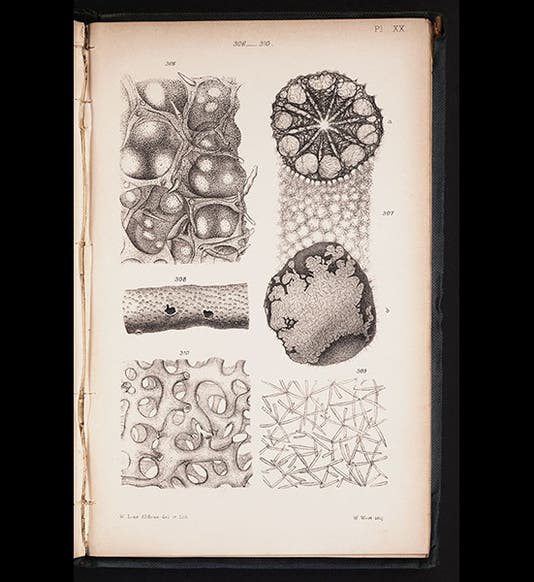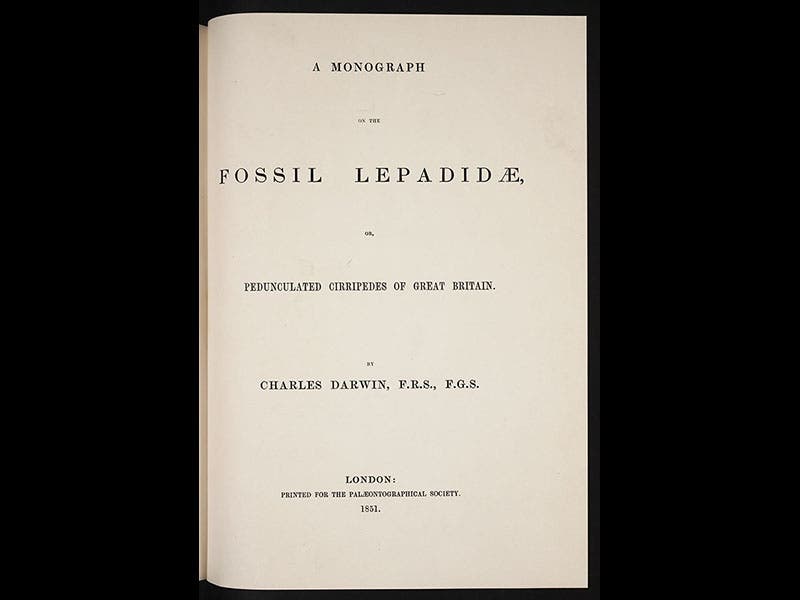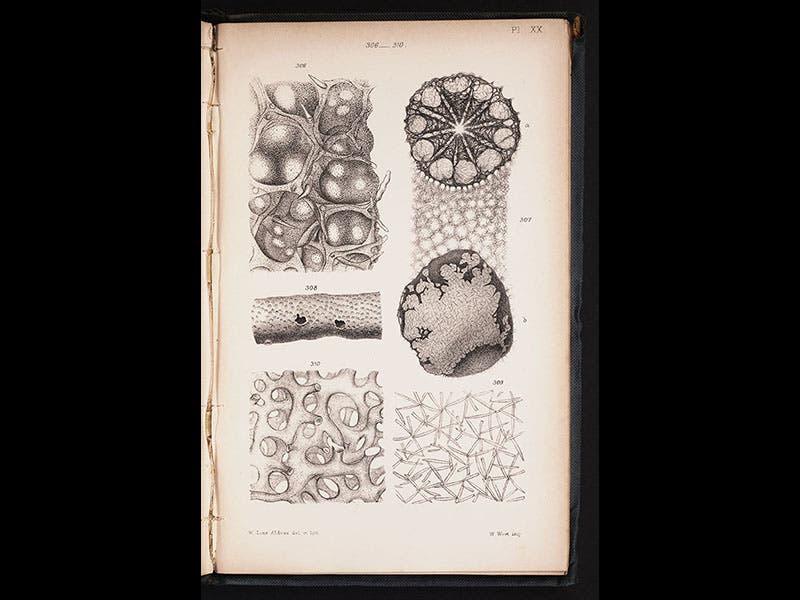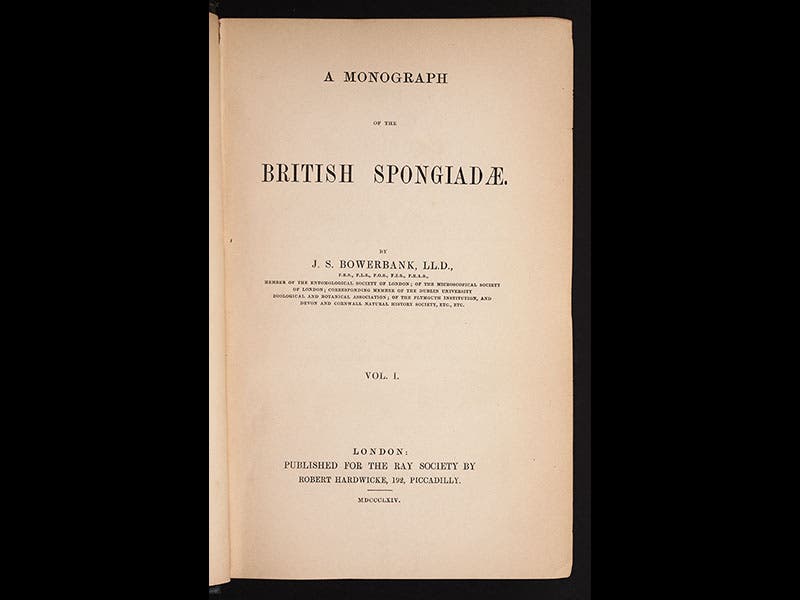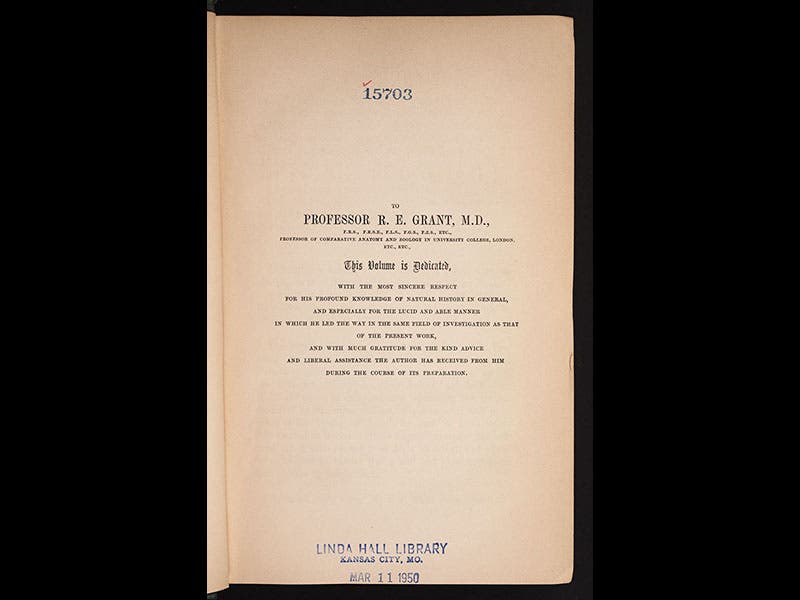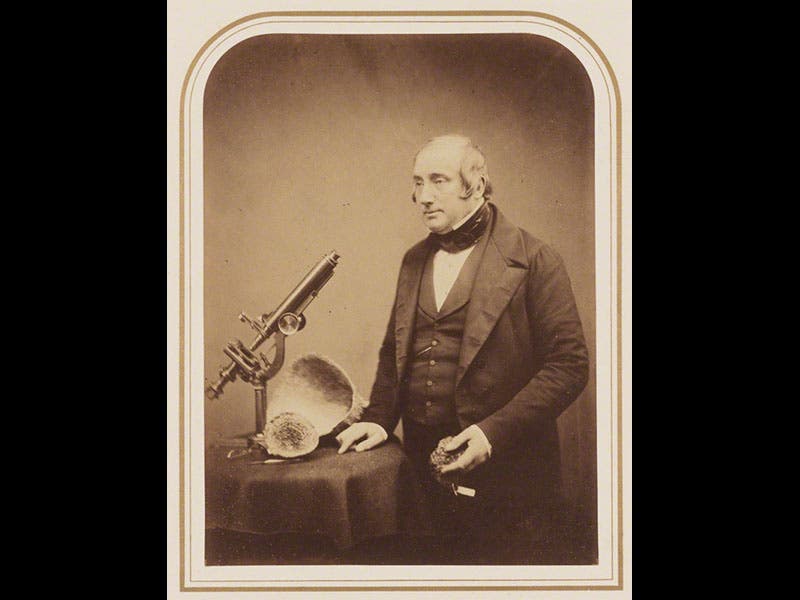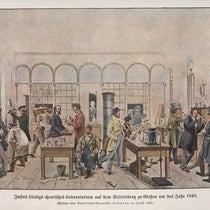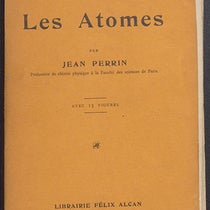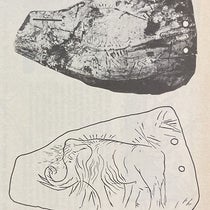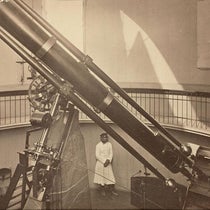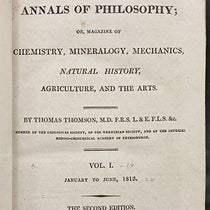Scientist of the Day - James Bowerbank
James Bowerbank, a British naturalist, was born July 14, 1797. Bowerbank was one of scores of English naturalists who provided Charles Darwin with specimens, support, and information, and made it possible for Darwin to pursue his studies and eventually compose The Origin of Species in the relative isolation of his home in Downe. Bowerbank made his money from the family distillery and passionately collected invertebrate fossils from around London; he even formed an association of fellow fossilists, The London Clay Club, named after the local rock formation, London Clay, the name of which has unfortunately given way to the term Eocene (the Club did not survive the transition).
Bowerbank sent many barnacle specimens to Darwin during Darwin's great barnacle project, 1846-54, and Darwin singled Bowerbank out for thanks in the prefaces to his published books. Since it was difficult to get papers on invertebrate fossils published, Bowerbank founded another group in 1847, the Palaeontographical Society, whose publications provided a forum for such papers. Darwin's two volumes on fossil barnacles, 1851-54, were published under the auspices of the Palaeontographical Society (first image). Bowerbank published his own monograph on British sponges in 1864 (second and third images). This set was published by the Ray Society, another organization recently established with the aim of publishing specialist work that otherwise could not find its way into print. Darwin's two volumes on living barnacles were published by the Ray Society. Interestingly, Bowerbank dedicated his sponge monograph to Robert Grant at University College, London (fourth image). Darwin had studied with Grant at Edinburgh in the 1820s, and he commented in his autobiography that Grant made no more scholarly contributions after his move to London in 1827. Bowerbank clearly had a different opinion. It is probably not incidental that Grant, an invertebrate zoologist, favored sponges over barnacles.
The portrait of Bowerbank below is an albumen print in the National Portrait Gallery, London, taken in 1855. The Library has near-complete sets of the publications of both the Ray Society and the Palaeontographical Society.
Dr. William B. Ashworth, Jr., Consultant for the History of Science, Linda Hall Library and Associate Professor, Department of History, University of Missouri-Kansas City. Comments or corrections are welcome; please direct to ashworthw@umkc.edu.

